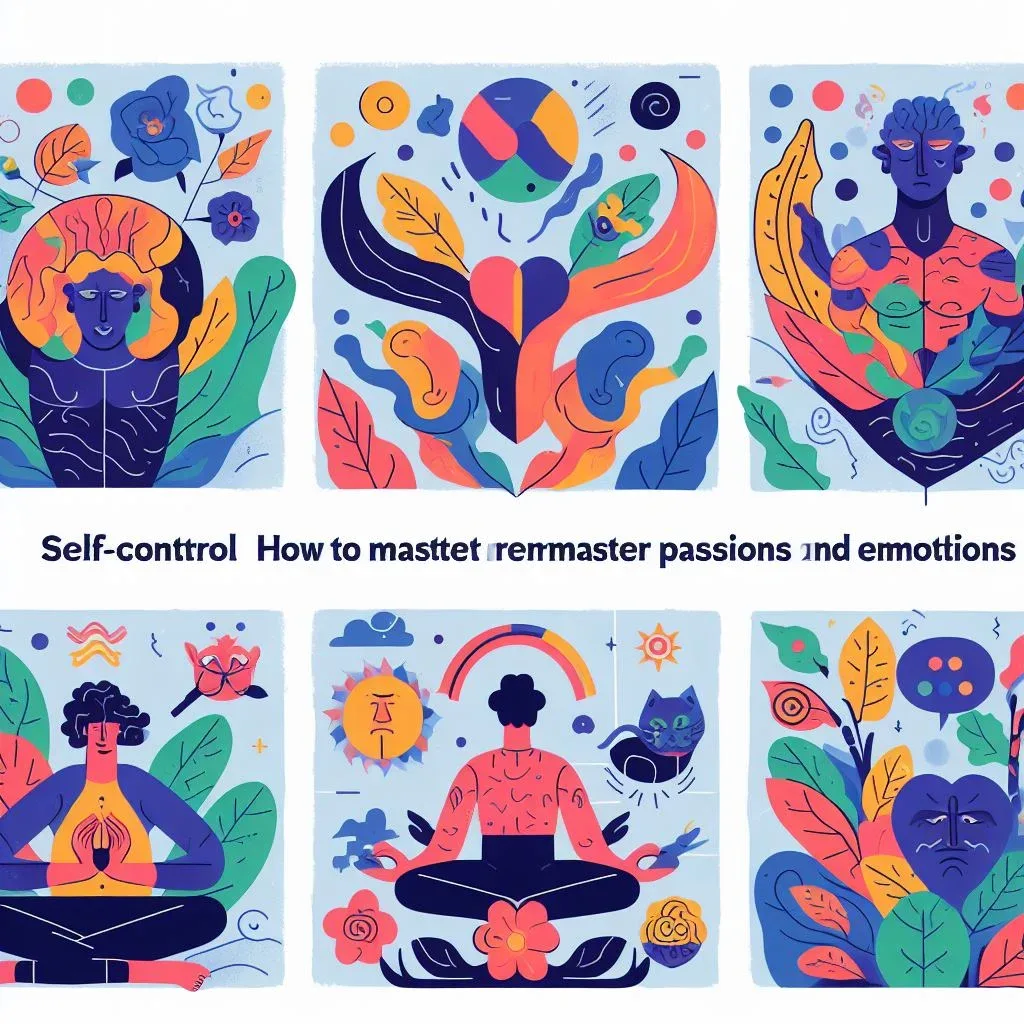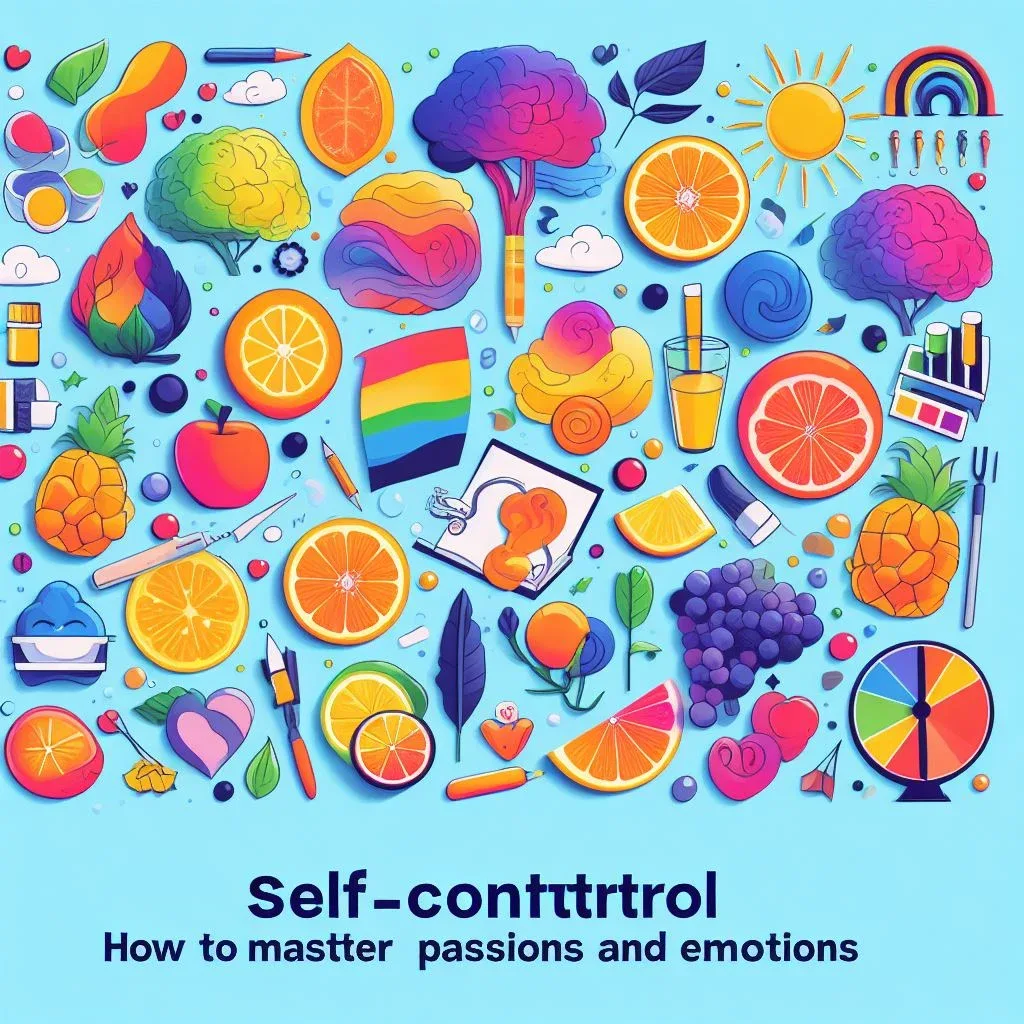The Roman philosopher Seneca is a prominent figure in the Stoic school of philosophy, known for his profound perspectives on human nature and the paths to virtue. One of the areas that Seneca focused intensely on was the domain of emotions and passions. He believed that self-control was fundamental to a virtuous and peaceful life. This article explores Seneca's ideas about emotional self-control and provides practical tips for implementing these ideas in everyday life.

The Importance of Self-Control According to Seneca
The Philosophical Basis
For Seneca, self-control is not just a matter of moderation, but a deep understanding and mastery of the passions that often rule us. He sees passions as destructive forces that can divert individuals from the path of virtue and reason. Therefore, mastering passions and emotions is crucial to living according to Stoic principles of virtue and wisdom.
The Impact of Passions
Seneca discusses how passions, such as anger, fear, and desire, can dominate a person and lead them to irrational and destructive actions. He argues that by allowing these passions to control us, we move away from reason and suffer negative consequences for both ourselves and others.
Seneca's Strategies for Self-Control

Reflection and Awareness
Seneca proposes a reflective approach to self-control. He suggests that we should examine our emotions and passions, understand their origins and the triggers that incite them. Through introspection and awareness, we can begin to gain control over our emotional reactions.
Practice of Rationality
Furthermore, Seneca emphasizes the importance of responding to situations with rationality rather than emotion. He suggests that when facing adversity or challenges, we should strive to respond with logic and reason rather than allowing our emotions to overwhelm us.
Practical Tips for Mastering Passions and Emotions
Meditation and Mindfulness
Practicing meditation and mindfulness can help cultivate the self-awareness and self-reflection necessary to understand and manage our emotions. By practicing meditation regularly, we can learn to observe our emotions without reacting impulsively to them.
Breathing Exercises
Breathing exercises are another useful tool that Seneca may have endorsed to help calm the mind and gain perspective before reacting to challenging situations. By learning to control our breathing, we can create space between the stimulus and our response, allowing for a more considered and rational response.
Applying Seneca's Ideas to Modern Life

Facing Daily Challenges
Seneca's ideas about self-control can be tremendously helpful in modern life, where we often face stress and challenges that can trigger strong emotions. By applying the principles of self-reflection, rationality and mindfulness practices, we can learn to navigate life's adversities with greater serenity and control.
Conclusion: Seneca's Enduring Legacy
Seneca's legacy on the mastery of emotions and passions continues to offer a rich source of guidance and wisdom. His teachings on self-control invite us to live with greater awareness, rationality, and virtue, providing a path to peace of mind and personal fulfillment amid the inherent challenges of the human condition. Practical strategies derived from Seneca's ideas offer tangible methods for cultivating self-control and living a more balanced, meaningful life.
FAQ: Seneca and Self-Control: How to Master Passions and Emotions

1. Who was Seneca and why is he important in the context of self-control?
Seneca was a Roman philosopher, member of the Stoic school of philosophy. He emphasized the importance of self-control for living a virtuous and peaceful life, and proposed strategies for mastering passions and emotions that can lead to irrational and destructive actions.
2. How does Seneca view passions and emotions?
Seneca views passions as destructive forces that can divert individuals from the path of virtue and reason. He argues that it is crucial to master these passions and emotions in order to live according to Stoic principles.
3. What are the strategies suggested by Seneca for self-control?
Seneca suggests a reflective approach, examining our emotions and passions, and understanding their origins. He also emphasizes the importance of responding to situations with rationality rather than emotion.
4. How can meditation and mindfulness help with self-control?
Meditation and mindfulness can help cultivate the self-awareness and self-reflection needed to understand and manage emotions, allowing us to observe our emotions without reacting impulsively to them.
5. How can breathing exercises contribute to self-control?
Breathing exercises can help calm the mind, creating space between stimulus and response, which allows for a more considered and rational response to challenging situations.
6. How can Seneca's ideas about self-control be applied to modern life?
Seneca's ideas can be applied to modern life through self-reflection, rationality and mindfulness practices, helping to navigate life's adversities with greater serenity and control.
7. Does Seneca suggest any specific exercises to improve self-control?
The text does not mention a specific exercise suggested by Seneca, but modern practices such as meditation, mindfulness, and breathing exercises are discussed as useful methods for cultivating self-control.
8. What is the impact of passions on an individual’s life according to Seneca?
According to Seneca, passions, such as anger, fear and desire, can dominate a person, leading them to irrational and destructive actions, and moving them away from reason and virtue.
9. How does self-control contribute to peace of mind?
Self-control, by allowing control over passions and emotions, contributes to a more balanced and peaceful life, providing a way to face challenges with serenity and rationality.
10. What is Seneca's lasting legacy regarding self-control?
Seneca's legacy offers a rich source of guidance and wisdom about self-control, inviting individuals to live with greater awareness, rationality, and virtue by providing tangible methods for cultivating self-control and living a more balanced and meaningful life.




